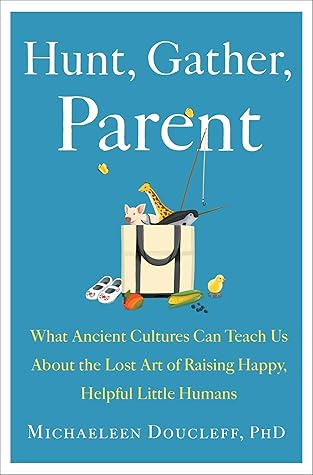More on this book
Community
Kindle Notes & Highlights
childcare. That is most “traditional,” right?I Not so in the slightest. If you look around the world—and investigate human history—you’ll find that the nuclear family (and a mom whose sole job is parenting) is arguably one of the most nontraditional structures out there. For 99.9 percent of the time humans have been on earth, the nuclear family simply didn’t exist. “It’s a family structure that’s been around for a tiny pinprick in human history,” says historian John Gillis, at Rutgers University, who has been studying the evolution of Western families for more than thirty years. “It isn’t old.
...more
no longer went to sleep when they were tired and woke up when they were rested. Instead, parents were now required to control, regulate, and time children’s sleep,
no longer went to sleep when they were tired and woke up when they were rested. Instead, parents were now required to control, regulate, and time children’s sleep,
harder. We expect children to be busy at every moment, to promptly obey our every request, and to reach every milestone as early as possible.
Lucia tells me that parents are teaching their children a skill that’s way more complex than simply knowing how to wash dishes or do the laundry: they’re teaching the children to pay attention to their surroundings, recognize when a specific chore needs to be done, and then do it.
Their role is to play or move out of the way. Another way to put it: If you tell a child enough times, “No, you’re not involved in this chore,” eventually the child will believe you and will stop wanting to help. Children will come to learn that helping is not their responsibility.
words are lectures—and confusing ones at that. Watch what the child does and try to build off their effort.
1. Continue the focus on working together. Call children over to help with chores alongside you. Instead of “Put away your plate after dinner” or “Fold your laundry,” you’re framing the tasks as a communal activity, such as “Let’s all work together to clean up the kitchen after dinner” or “Let’s all help fold the laundry as a family.”
Maya parents welcome children into the adult world and give them full access to the adults’ lives, including their work.
parent wouldn’t be there if the child wasn’t around, and the
because praise breeds competition.
“American parents need to stop talking so much and listen more to their children,”
“Never yell at a child,”
“Yes,” says Lisa Ipeelie with a giggle that seems to emphasize how silly she finds my question. “When children are little, it doesn’t help to raise your voice, or get angry at them. It will just make your own heart rate go up.”
That’s not how we teach our children. Instead, you are just teaching children to run away.”
American kids don’t listen because their parents are always shouting. “You can
“We are training them to yell when they get upset and that yelling solves problems,” she says.
All of these questions and statements are doing the opposite of what I want them to do. They convey a sense of urgency and stress. And they
• Stop arguing with small children.
Fewer words create less resistance. Fewer words cause less stress.
For example, during meals and snacks, I no longer act like a waitress, listing off the specials.
Children’s emotions become what they are by other people’s response to them.”
“If you say, ‘Stop it,’ that’s attention,” Batja says.
American parents tend to rely on verbal instruction and explanations to change children’s behavior. But words are often the least effective way to communicate with children, especially young children.
Commands and lectures often cause power struggles, negotiations, and cycles of anger.
Why do I feel the need to talk or do something at every moment? I wonder.


